- Home
- Paul Christopher
Sword of the Templars Page 4
Sword of the Templars Read online
Page 4
The hunchback?
The Italian poet. He won the Nobel Prize, if I remember correctly. Henry met him in Rome after the war.
Sad, said Peggy, staring up at the print above the fireplace.
Not to Uncle Henry. Holliday shrugged. To him it was a caution: your time on earth is brief, dont waste it. Death comes to us all. Every day is a gift.
And it came to Grandpa in the end, sighed Peggy, slumping down into the big green chair.
Holliday went to the desk and sat down in Uncle Henrys old-fashioned wooden swivel chair. The desk was a massive oak rectangle, the twin pedestals roughly carved with trails of ivy and shapes of birds and small forest animals. There was a large, leather-edged blotter on the top surface and a green-shaded brass bankers lamp to light it.
The wood was dark, worm-eaten, and polished by time, the edges of the pedestals worn and chipped. Holliday had always assumed that the desk had been made from the remains of a shipwreck, although hed never asked about it and now regretted not doing so. The desk looked Spanish, perhaps fifteenth century. He had no idea how it had come to be in a house on the shores of Lake Erie, but like many things in Uncle Henrys life there was almost certainly a story behind it.
There were three drawers in each pedestal and another drawer in between. Holliday went through each drawer carefully and methodically. The drawers on the left were filled with personal files relating to Uncle Henrys bills, banking, old tax returns, receipts, and the general maintenance of the house. The drawers on the right were filled with more files, these mostly relating to his years at the university and his professional correspondence.
There was one marble-sided cardboard accordion file filled with incomprehensible notes on scraps of paper, written in at least three languages that Holliday could decipher, including what appeared to be Hebrew. He also found several maps, including one of La Rochelle on the Bay of Biscay coast of France.
The map was small, the paper fragile and yellowed. It looked as though it had been torn out of an old Michelin guidebook. There were several faint notes on it in faded pencil: Huguenot? Ireland? Which Rock? Holliday put the map back in the cardboard file.
He looked in the center drawer. There was nothing in it but stationery and an old, blunt-bladed, ebony-handled dagger that looked as though Uncle Henry might have used it as a letter opener. Holliday had never seen it before, but he immediately recognized it for what it was. He flipped it over to check the inscription engraved on the tarnished blade just to be sure: Meine Ehre Heisst TreueMy Honor Is Loyalty. It was a Nazi SS dagger.
What was he doing with one of these? Holliday said aloud.
What? Peggy asked. Holliday explained.
I guess it was a souvenir, Holliday said finally, holding it up for her to see.
Was he ever in Germany during the war? Peggy asked, frowning. I thought he was in intelligence, like Ian Fleming and all those guys who sat around smoking pipes and thinking up ways to irritate the Gestapo. I never thought he actually did anything. I mean, you know, anything dangerous.
Neither did I, said Holliday.
Maybe its a fake, a reproduction, suggested Peggy.
I dont think so, answered Holliday, hefting the old edged weapon. It had the cold weight of something used in a dark time for dark deeds. History was fused in the dagger, the sensuously shaped blade tempered in spilled blood. Or maybe he was reading too much into it. The lighting runes and swastika could still cast a nasty spell. He tipped the dagger back into the drawer and pushed it closed.
Maybe thats what Broadbent was talking about, said Peggy, getting up out of the chair and going to the wall of bookcases on the other side of the room.
You could call that dagger a lot of things, answered Holliday. But no ones going to mistake it for a sword.
I wonder why it was so important to his father? Peggy said. She smiled suddenly. Look at this! she said excitedly. All the old kids books he introduced me to. Theyre all here. She started reading titles. All the Narnia books, Five Children and It, Swallows and Amazons, The Wouldbegoods, The Famous Five by Enid Blyton; theyre all here!
Holliday joined her, his eyes scanning the shelves and finally finding what hed been searching for: a single heavy hardcover volume, still in its pale green and cream colored dust jacket, a first edition of T. H. Whites Arthurian epic, The Once and Future King.
Uncle Henry had read the entire four-part story to him when he was a young boy, and later Holliday had reread it again by himself many times over. If ever thered been a story for a boy on a rainy day in upstate New York, that was it. He smiled at the memory; the kind of book that Harry Potter would have read and treasured. He flipped open the book to the title page and a small piece of paper fluttered out and drifted down onto the carpet. Holliday slid the book back into place and bent to retrieve the folded scrap. There was writing on it done in Uncle Henrys unmistakable cop perplate script with a fountain pen, the black ink faded to a sepia.
Hic iacet Arthurus rex quondam rexque futuris: Here lies Arthur, the Once and Future King. Seek through the storied years to find the treasure down below: thus it is for you to seek and thus it is for me to know.
Whats that all about? Peggy asked.
The first part of it is supposed to be the Latin inscription on King Arthur s grave in Avalon. Its the last sentence in the T. H. White book.
What about the rest of it?
Some kind of riddle.
Who for?
Me presumably, said Holliday. It was my favorite book. He knew that eventually Id come back for it. He paused, then added softly: After he died.
Any idea what it means?
Holliday whispered the riddle to himself again, then stepped back from the bookcase, looking at the collection of childrens stories as a whole. The storied years: all these books. Your childhood and mine.
Treasure down below? Peggy queried.
Theres nothing down below, said Holliday. Just more books.
Down in the basement, under the floorboards?
I never saw Henry hammer a nail in his life, let alone tear up floorboards, snorted Holliday. Not his style.
Holliday stared at the bookcases. They had obviously been custom made, fitted into the house as it was being built, which predated Uncle Henrys occupation by decades. They were like a row of narrow Gothic arches, the kind of exotic cabinetry the late Victorians were so fond of, especially in a town like Fredonia which was full of houses like Henrys. Each bookcase had eight shelves, floor to ceiling except for the points of the arches and the ornately scrolled kick plates at the bottom.
Holliday looked down at the riddle again. Thus it is for you to seek and thus it is for me to know.
Peggy saw it first.
The kick plate, she said, dropping down on her hands and knees. She ran her fingers along the four-inch-high strip of wood, pressing lightly every few inches. At the center of the kick plate the pressure resulted in an audible clicking sound and the wood jumped forward an inch or so on some kind of spring mechanism.
A secret drawer, said Holliday.
Grandpa Henrys stash? Peggy said, smiling up at Holliday.
Open it, he said.
She did. The drawer was the same depth as the bookcase, about eight inches, running from one side to the other. It was lined with very old and very worn satin that might have been purple a hundred years ago but which was now faded to a pale eggplant shade. There was a single object in the drawer. It was wrapped in a red, gold, black, and white silk pennant that was as unmistakable as the dagger in the desk.
What the hell is that? Peggy asked, horrified.
Its the Standarte des Führers und Obersten Befehlshabers der Wehrmacht, said Holliday, wrapping his tongue around the German. Adolf Hitlers personal standard. His battle flag. He paused
. Lets see what treasure is hidden underneath it. Peggy tentatively unwrapped the silk covering.
Amazing, she whispered.
A sword, said Holliday, looking at the object nestled in the secret compartment. A crusaders sword.
5
The sword was three feet long with a simple cross guard and a flat, circular pommel. The hilt looked as though it had been covered in some sort of ancient varnished leather, now almost completely rotted away by time to show the wire wrapping underneath. The blade was roughly thirty inches long, double-edged with a shallow fuller, the so-called blood channel running down the center and gently ridged from the center.
Crusaders sword? Peggy said. It doesnt look like much to me.
It was called an arming sword, or a short sword, said Holliday. It was the equivalent of a Wild West six-shootera working weapon for everyday use. Cops carry pistols, knights carried these. It must be the one Broadbent mentioned.
I thought swords were fancier.
Holliday bent down and picked up the weapon, World War II standard and all. There was a small label on the flag: Kuhn & HupnauMünchen. He turned and brought the sword back to Uncle Henrys desk, laying it carefully down with both hands. It looked almost obscenely beautiful in its ghastly silk nest. A gleaming device meant only for killing. A thousand years old and as deadly now as it had ever been.
Its a rich mans sword, fancy or not, he said, examining it closely under the light.
How can you tell? Peggy asked.
Its Damascus steel, he answered.
Whats that?
See the watery texture in the blade? Holliday said, pointing out the rippling patterns that ran through the metal, like oiled moiré silk. Damascus steel was made with a special kind of iron imported from India and later from Persia. Only a few of the greatest swordsmiths knew how to use it. They were almost a secret society. During the forging the metal was folded over again and again, sometimes fifty or a hundred times like a Japanese katana. The end result was a blade so strong and sharp it could cut through any kind of armor or chainmail. Use it the right way and you could literally cut a man in half if you knew what you were doing. They say it was strong enough to cut through solid rock.
The Sword in the Stone?
Thats probably the origin of the story.
Damascus is the capital of Syria. How would a crusader get hold of a sword made by the other guys?
Holliday laughed. Dont kid yourself. There was as much trading with the enemy back then as there is today. War has always been about money. Standard Oil of New Jersey was refueling Nazi submarines in the Atlantic right up until Pearl Harbor. He shook his head. The real question is how Uncle Henry got the sword and why he was keeping it a secret.
Maybe we should ask someone.
Who? Holliday asked. Its not as though he had a lot of friends. Ones that are still alive anyway.
How about the university? Peggy suggested. Maybe somebody there.
He was a professor emeritus. He didnt lecture anymore. I think he was thesis advisor to a few grad students, but thats about it.
Still . . . Peggy said.
Holliday glanced at his watch. It was five oclock. Probably too late for anyone at the school. He stared at the sword. He knew well enough that an artifact of such good quality and condition would normally have pride of place in the collection of any museum. It was a collectors dream. In the hands of an expert there was even a good chance that the actual swordsmith could be identified; most smiths had a private chop or hallmark that they stamped somewhere on their work. Why had Henry decided to keep it hidden from prying eyes? Curiosity got the better of him.
We can give it a shot. Leaving the sword where it was, they left the house, Holliday carefully locking the front door behind them.
Your ride or mine? Peggy asked. She had a Hertz rental from Niagara Falls while Holliday was using a Crown Victoria tan sedan from the West Point Motor Pool. It had the suspension of a tank, no radio, and no cup holders.
Yours, said Holliday.
The SUNY main campus was less than a mile north of the Hart Street house. The grounds were pleasant, treed, and mostly modern, a lot of the buildings bearing the unmistakable mark of the architect I. M. Pei, the Chinese-American designer who seemed to favor flat, featureless cubes and rectangles that often looked like three-dimensional studies in geometry rather than buildings. Someone had once called it fortress architecture. To Holliday it seemed more like simple random shapes made from a childs wooden blocks.
The History Department was located in Thompson Hall, a squat firebrick rectangle with a jutting wing at each end. Holliday and Peggy began navigating a series of windowless, dimly lit corridors.
I remember studying places like this in Sociology, muttered Peggy as they trailed down yet another bleak hallway. They were meant to be riot proof. Narrow stairwells, bad lighting, slow elevators. She snorted. Who riots in universities these days? Theyre all business students now. No more sex, no more drugs, and no more rock and roll. Just beer and football.
Dont kid yourself. Holliday grinned. Theres still a lot of sex, drugs, and rock and roll, even at West Point.
Be still my heart, gasped Peggy in mock horror. You mean the Army of One smokes pot?
Thats the least of it, replied Holliday. Think of all the places the Army sends its soldiers: Vietnam, Panama, Iraq, Afghanistan; drug paradises, each and every one.
Youre too cynical.
Heroin use in America increased by almost two hundred percent during Vietnam, said Holliday. Of course Im cynical.
They found the Medieval Studies Department on the third floor. The offices stood around a central reception area guarded by a secretary. The nameplate on the secretarys desk identified her as Ms. Caroline Branch. The name was apt; she was thin as a twig. She appeared to be in her late fifties or early sixties. Once upon a time shed probably been quite beautiful, even model pretty, but the years had taken their toll. The high cheekbones now stood out like ax blades, her neck was thinning, the wrinkling hidden behind a col orful scarf, the small breasts impossibly symmetrical in a padded bra. Her hairstyle was a flipped-under look from the seventies, streaks of gray overtaking what once might have been chestnut but which was now merely brown.
Her hands had long, elegant fingers, unadorned, and a few gnarled raised veins, and a few more age spots. There were no bangles on her wrists. She looked as though shed been a secretary forever. Holliday introduced himself and Peggy. Ms. Branch seemed unimpressed; there wasnt even a token expression of sympathy at Uncle Henrys passing. Holliday could smell the faint, sour scent of tobacco in the womans hair and some kind of sweet alcohol on her breath. A secret smoker and a sherry drunk, perhaps.
We were wondering if we could get into Professor Grangers office, said Holliday.
Wed like to get some of his personal things, added Peggy.
Its very late, the secretary complained. She gave an obvious glance at the large-faced mens-style watch on her right wrist. I was just about to leave.
We wont be very long, said Holliday.
We could lock up if you wanted us to, offered Peggy.
Ms. Branch looked insulted.
I couldnt allow that, Im afraid, she said.
How long were you the professors secretary? Holliday said.

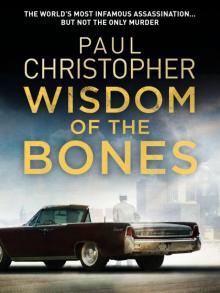 Wisdom of the Bones
Wisdom of the Bones The House of Special Purpose
The House of Special Purpose The Second Assassin
The Second Assassin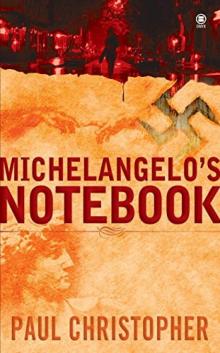 Michelangelo's Notebook
Michelangelo's Notebook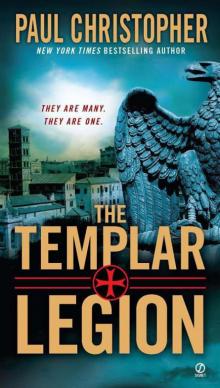 Templar Legion
Templar Legion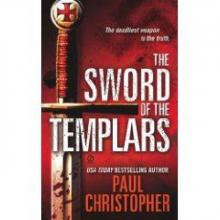 The Sword of the Templars t-1
The Sword of the Templars t-1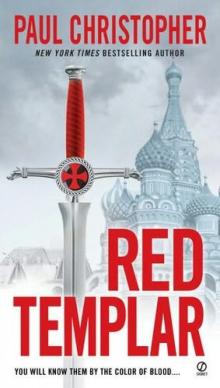 Red Templar
Red Templar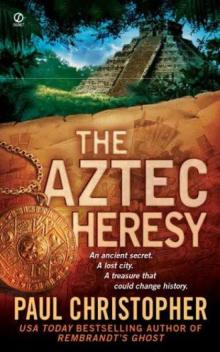 The Aztec Heresy
The Aztec Heresy The Templar Legion
The Templar Legion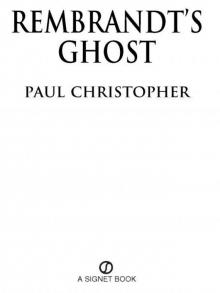 Rembrandt's Ghost
Rembrandt's Ghost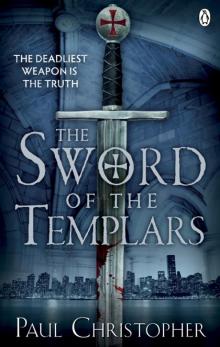 Sword of the Templars
Sword of the Templars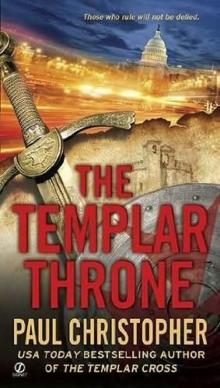 The Templar throne t-3
The Templar throne t-3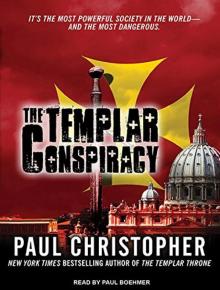 The Templar Conspiracy
The Templar Conspiracy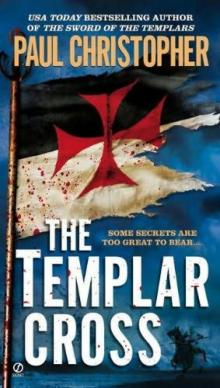 The Templar Cross t-2
The Templar Cross t-2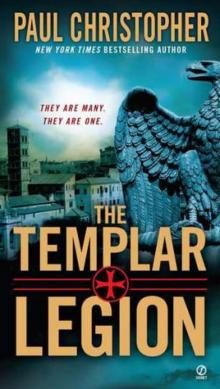 The Templar Legion t-5
The Templar Legion t-5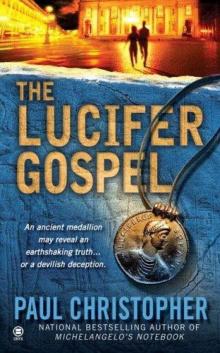 The Lucifer Gospel
The Lucifer Gospel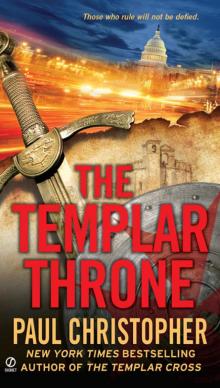 Templar Throne
Templar Throne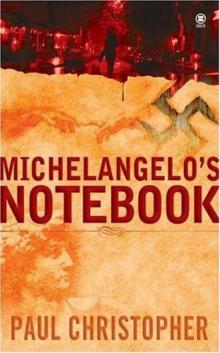 Michelangelo_s Notebook fr-1
Michelangelo_s Notebook fr-1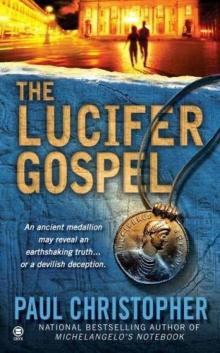 The Lucifer Gospel fr-2
The Lucifer Gospel fr-2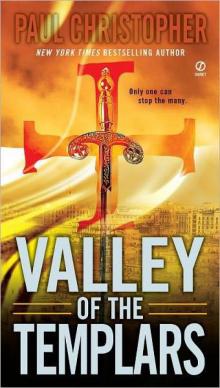 Valley of the Templars ts-7
Valley of the Templars ts-7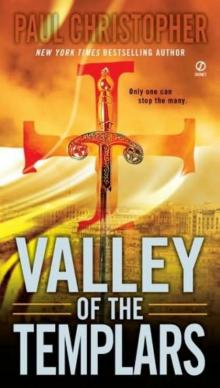 Valley of the Templars
Valley of the Templars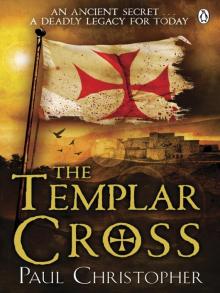 Templar Cross
Templar Cross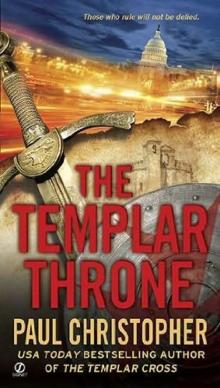 The Templar Throne
The Templar Throne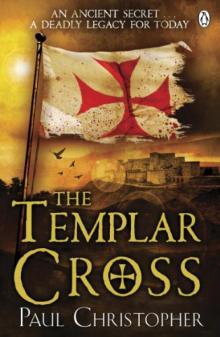 The Templar Cross
The Templar Cross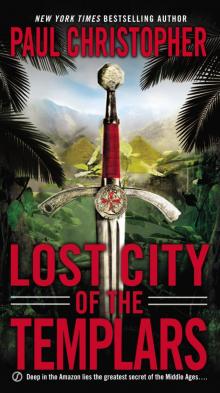 Lost City of the Templars
Lost City of the Templars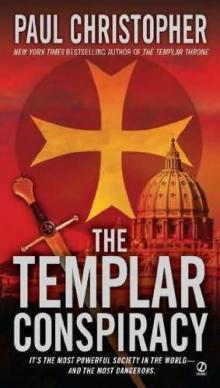 The Templar conspiracy t-4
The Templar conspiracy t-4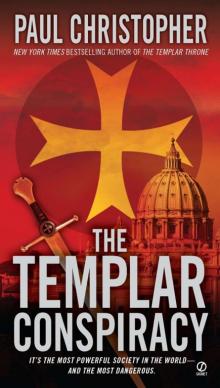 Templar Conspiracy
Templar Conspiracy